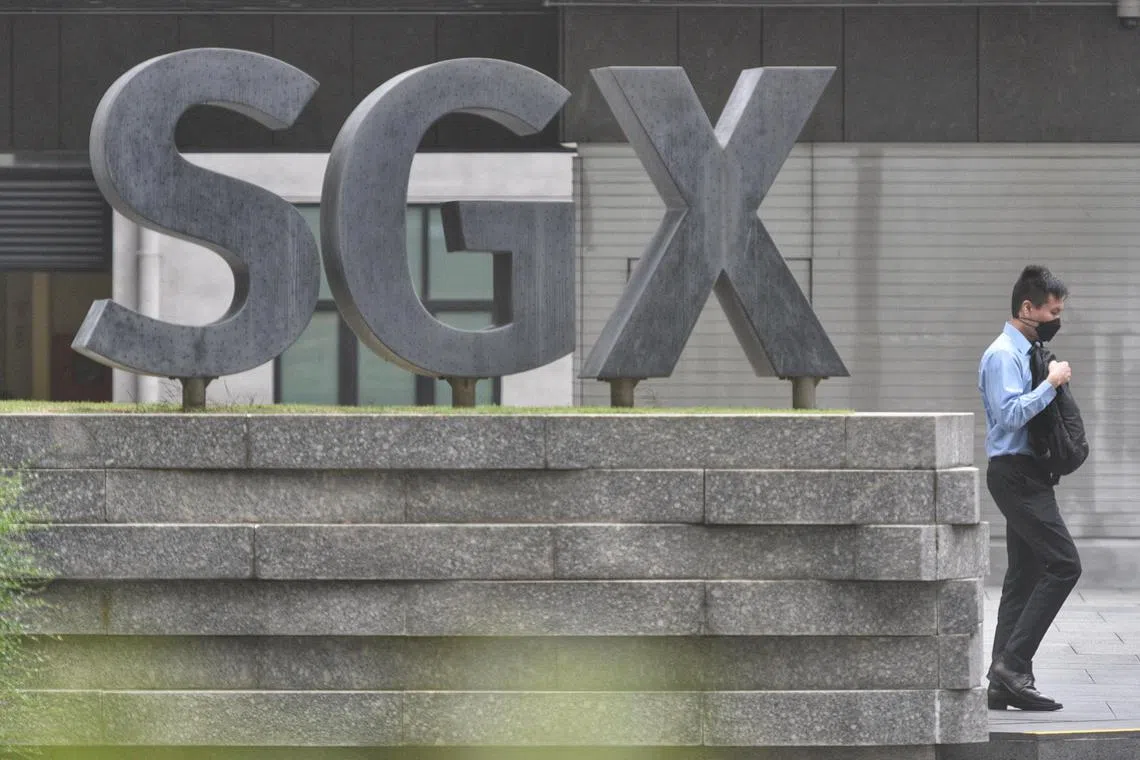Singapore stocks track regional losses on uninspiring US inflation; STI drops 1.1%
Sign up now: Get ST's newsletters delivered to your inbox

The STI fell to 3,280.82, following the mixed showing on Wall Street.
PHOTO: ST FILE
Anita Gabriel
Follow topic:
SINGAPORE – Local shares sank for the third straight day on Wednesday following a mixed showing on Wall Street
While the latest figures showed inflation in the United States had slowed to 6.4 per cent in January, down from 9.1 per cent in June, the threat of more rate hikes remains.
The S&P 500 hedged its bets and edged down by less than 0.1 per cent, but the Dow Jones shed 0.5 per cent, while the Nasdaq ended 0.6 per cent up after see-sawing between a deficit of 1.1 per cent and a rise of 0.9 per cent.
The Straits Times Index (STI) responded to the hot-and-cold session by falling 37.38 points, or 1.1 per cent, to 3,280.82, an outcome that may also have been sparked in part by Singapore’s Budget on Tuesday, which raised taxes on higher-end properties
Wednesday’s losses were led by Singapore’s three banks, DBS, UOB and OCBC.
Property developers such as City Developments, UOL and CapitaLand Investment also fell after higher marginal buyer’s stamp duty for pricier residential and non-residential properties was announced in the Budget on Tuesday.
The move came as a surprise, given residential cooling measures were introduced in December 2021 and September 2022.
City Developments (CDL) shares fell the most among the three developers, sinking 3.2 per cent to $7.87.
OCBC Investment said it expected incremental pressure on Singapore’s banking sector from the higher stamp duty rates that come amid what is expected to be moderating mortgage growth in the first half of the year.
It added that the impact should be manageable for banks despite the hit to sentiment over the near term.
Key regional gauges from Japan to Hong Kong, Taiwan, China, South Korea and Australia finished in the red, while Malaysia closed with marginal gains. THE BUSINESS TIMES

